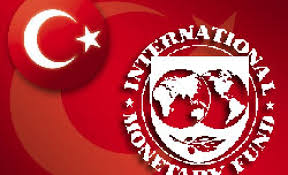Following the Mission’s Turkey visit, the IMF released a press releases including statements of IMF staff teams that convey preliminary findings.
According ly, the Fund stresses that the policy rate cuts in late 2021 exacerbated existing macroeconomic vulnerabilities and created higher inflation through TL weakness. The IMF also stresses that pressures on TL were relieved by routine FX interventions and the FX-protected deposit scheme along with a series of macroprudential and regulatory measures to contain credit growth.
Evaluating the current economic situation the IMF recommends immediate rate hikes together with moves to strengthen the central bank’s autonomy. The Fund notes that such moves would not only help reduce the inflation but would also help fx reserve accumulation. The IMF staff urges a tight fiscal policy to rein in inflation yet with provision made for targeted assistance to the vulnerable. The Fund also urges to phase out the FX-protected deposit scheme.
“An IMF staff team visited Ankara and Istanbul during October 14–26, 2022 to conduct discussions for the 2022 Article IV consultation. The mission met a broad range of counterparts from the public and private sector. The discussions covered the performance of Türkiye’s economy since the Covid-19 pandemic and the policy challenges that lie ahead.
“Growth rebounded strongly from the initial impact of the pandemic, reflecting a dynamic private sector and stimulative policies. Policy rate cuts in late-2021 added to existing vulnerabilities and were followed by lira depreciation and high inflation. Pressures on the lira were relieved by FX interventions, a new “FX-protected” deposit scheme and, more recently, by a range of macroprudential and regulatory measures to contain credit growth. The war in Ukraine heightened economic strains, especially through higher energy import prices.
“To address Türkiye’s challenges, the mission recommended early policy rate hikes accompanied by moves to strengthen the central bank’s independence. Such moves would help reduce inflation more durably and allow reserve buffers to be rebuilt over time. Tight fiscal policy would also help, given rising fiscal risks and high inflation, with provision made for targeted assistance to the vulnerable. If these policies were implemented and as disinflation takes hold, macroprudential and regulatory measures, including FX-protected deposits, should be phased out carefully, so that the state plays a smaller role in financial markets and in credit allocation.
“In the coming weeks, the IMF team will prepare the 2022 Article IV Consultation report, which is scheduled to be considered by the IMF Executive Board in January 2023.
